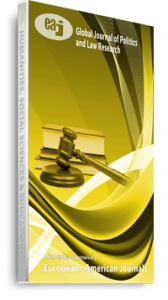The dynamism and complexity of Nigeria’s fiscal federalism have occupied the front burner of academic and political discourse since the return to democratic rule. The discussion on Nigeria’s fiscal practice became necessary because it has created several crises threatening the continued existence and continuity of the Nigerian state. The desertion of true federalism in Nigeria has led to the neglect and marginalization of the Niger Delta region of Nigeria, where the country generates the bulk of its wealth through oil and gas exploration and exploitation. The Niger Delta region oil-producing states have been very vocal in their agitations for a fair share of the country’s wealth by the restructuring of the parameters for sharing and allocating the wealth of the nation located within their region. The agitations for resource control, it is believed, would make more resources available to the various states to ensure economic and social development. The protests have arisen for the reason that a more substantial portion of the nation’s wealth goes to the federal government at the detriment of the oil-producing states. The Nigerian federal government is yet to make any significant attempt to alter the status quo. No constitutional amendment is has been made to ensure the practice of true fiscal federalism in the country. This paper examined the debate and concept of fiscal federalism. It explores revenue allocation formula in Nigeria and the statutory role of revenue mobilization allocation and fiscal commission, the quest for resource control and Nigeria’s federalism, dimensions of resource control agitations by the Niger Delta region, and causes of the Niger Delta crisis. The paper concludes with some profound recommendations on the way forward.
Keywords: Fiscal federalism, Niger Delta Region, Nigeria, Restructuring, resource control, revenue allocation formula

